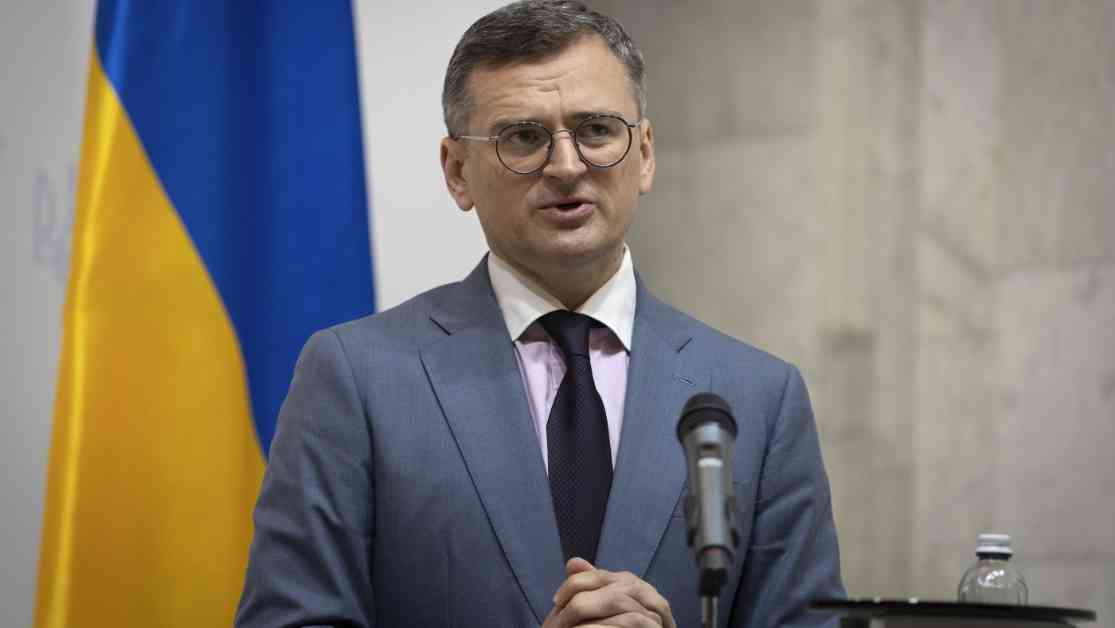Foreign Minister Dmytro Kuleba of Ukraine, a prominent figure on the international stage, has tendered his resignation amidst the ongoing conflict with Russia. This development comes in the wake of heightened tensions following Russian strikes in Lviv that resulted in the loss of several lives and injuries to many others. The resignation of Kuleba, who has been instrumental in conveying Ukraine’s message to the global community, signals a potential Cabinet reshuffle as President Volodymyr Zelenskyy moves to bolster the government’s position in the midst of the war.
Foreign Minister’s Resignation
Dmytro Kuleba, aged 43, has been a key figure in Ukraine’s diplomatic efforts since assuming the role of Foreign Minister in March 2020. Known for his effective communication skills and advocacy for Ukraine’s interests, Kuleba has been pivotal in engaging with foreign dignitaries and representing his country on the international stage. His decision to resign, without citing a specific reason, has raised speculation about the future direction of Ukraine’s foreign policy under a new leadership.
President Zelenskyy had hinted at an imminent Cabinet reshuffle in a bid to revamp the government’s structure and enhance its effectiveness in dealing with the ongoing conflict. With more than half of the current Cabinet expected to undergo changes, the political landscape in Ukraine is poised for a significant shift. Kuleba’s departure marks the beginning of a series of resignations and appointments that are set to take place in the coming days, as the government seeks to adapt to the evolving challenges posed by Russia’s military aggression.
Russian Strikes in Lviv and Beyond
The recent Russian strikes in Lviv have once again underscored the brutal nature of the conflict in Ukraine, with reports of casualties and injuries emerging from the city. The attack, which claimed the lives of at least seven individuals and left dozens wounded, including a child and a medical worker, has elicited condemnation from local authorities and international observers. The indiscriminate targeting of civilian areas has raised concerns about the humanitarian impact of the ongoing war on innocent lives.
In addition to the strikes in Lviv, another attack in Kryvyi Rih, Zelenskyy’s hometown, resulted in injuries to several individuals. The escalation of violence in various parts of Ukraine has heightened fears of further bloodshed and destruction, prompting calls for increased support from Ukraine’s allies to counter the Russian aggression. President Zelenskyy’s plea for greater military assistance reflects the urgent need for enhanced capabilities to defend against Russian incursions and protect Ukrainian sovereignty.
Deadly Missile Attacks in Poltava
The recent missile attacks in Poltava, which targeted a military academy and a hospital, have left a devastating impact on the city, claiming the lives of over 50 people and injuring more than 200 others. The destructive power of the missiles, which caused significant damage to infrastructure and resulted in multiple casualties, has elicited shock and outrage from Ukrainian officials and the international community. The barbaric nature of the attack has raised questions about the ethics of warfare and the need to protect civilians in conflict zones.
The missiles struck the Poltava Military Institute of Communication’s main building, causing extensive destruction and loss of life. The timing of the attack, coinciding with an air-raid alert, has exacerbated the tragedy as many individuals were caught off guard while seeking shelter from the impending danger. The strategic location of Poltava, situated on a major transportation route between Kyiv and Kharkiv, has made it a focal point in the conflict as Ukrainian forces and Russian troops vie for control over key territories.
As the war in Ukraine continues to escalate, with both sides engaging in fierce battles and strategic maneuvers, the toll on civilians and infrastructure is mounting. The recent spate of attacks in Lviv, Kryvyi Rih, and Poltava highlights the need for urgent action to protect innocent lives and safeguard the country’s territorial integrity. The international community’s response to the crisis will play a crucial role in determining the outcome of the conflict and shaping the future of Ukraine in the post-war era.



























